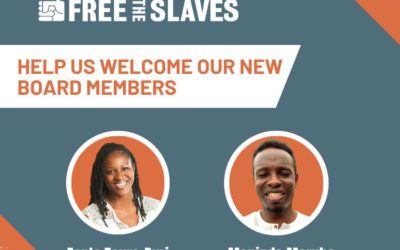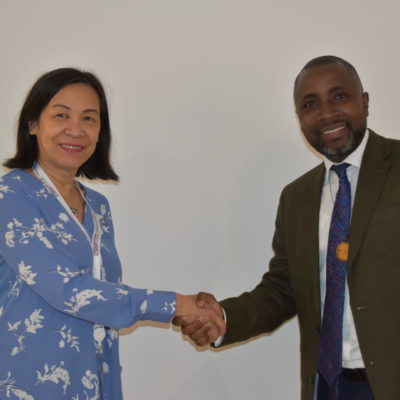In 2007, Free the Slaves became one of the founding members of the Alliance to End Slavery and Trafficking (ATEST). Formerly known as the Action Group, ATEST is a coalition of diverse, U.S.-based organizations, united by our shared goal of ending modern-day slavery and human trafficking globally. Many of the most prominent anti-slavery organizations are part of the alliance. We meet regularly to plan and implement strategies to improve government policies to end slavery.
ATEST played the key advocacy role in increasing U.S. government funding to combat slavery domestically and around the world. Our successes include the successful proposal of improvements to the U.S. legislative framework, through the William Wilberforce Trafficking Victims Protection Reauthorization Act of 2008. And, we have already begun to garner support for the Act’s reauthorization in 2011.
This year, ATEST invited four new anti-slavery groups to join the alliance, increasing the number of organizations by 50 percent. The new members are the Coalition of Immokalee Workers (CIW), ECPAT-USA, Safe Horizon and World Vision. Director of ATEST Meredith Larson said in a press release, that the new members would “significantly enhance” the alliance’s ability to “create lasting change.”
Free the Slaves has connections with CIW and World Vision. We supported CIW’s Modern Day Slavery Museum, a mobile museum that allows visitors to interact with the reality of slavery in the Florida tomato industry, where CIW is breaking new ground in ending slavery. (Read more about how CIW is working to eradicate slave labor in the supply chain of Florida tomatoes.) And we worked with World Vision to develop ideas for leveraging development assistance programs to end slavery by inserting the idea of the “slavery lens” to all humanitarian work—a concept put forth by Free the Slaves President Kevin Bales in the book Ending Slavery. “Slavery can be hard to see if you are not used to looking for it,” Bales writes. But when economic, humanitarian and poverty alleviation assistance programs make anti-slavery efforts a holistic part of their work, great strides can be made in eradicating slavery.
Free the Slaves is excited to work with Safe Horizon and ECPAT-USA. Both organizations work to protect victims and assist survivors of human trafficking right here in the United States, where thousands of people are trafficked every year. Each new organization adds unique strengths—and years of experience combatting modern-day slavery—to ATEST’s work. We look forward to working together to influence government policy with the goal of eradicating modern day slavery once and for all.



